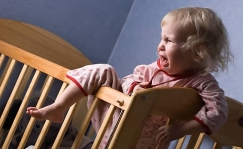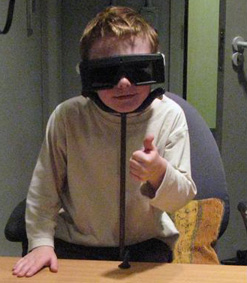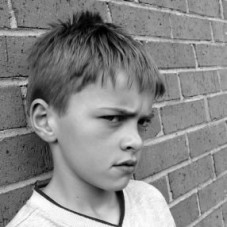 Infants suffer disrupted sleep patterns that can affect their development as a consequence of family feuds, a new study by an international group of researchers has found.
Infants suffer disrupted sleep patterns that can affect their development as a consequence of family feuds, a new study by an international group of researchers has found.
The researchers sought to assess the relationship between marital instability—for example, parents who were contemplating divorce—and children’s sleep problems—namely, difficulties getting to sleep or staying asleep. Their inquiry was based, in part, on the possibility that changes in the brain systems involved in how children develop and regulate their sleep patterns reflect the impact of family stress on children.
The study also determined whether it was unsettled sleep patterns in infants that affected their parents/carers or whether the quality of parents’ relationships affected the child’s sleep patterns.
What they found surprised the team- instability in a parents’ relationship when the infant was nine months old still affected the child when s/he was 18 months old.
[continue reading…]
Published: November 8, 2010
“The results of this study show that fearless behavior in children can be identified and is related to neurological and genetic predisposition. This type of behavior has less correlation – at least in infancy – with standards of educational processes or parenting practice,” says Dr. Inbal Kivenson-Baron, who carried out the study.
Preschool-aged children who demonstrate fearless behavior also reveal less empathy and more aggression towards their peers. This has been shown in a new study that was carried out at the University of Haifa’s Faculty of Education. “The results of this study show that fearless behavior in children can be identified and is related to neurological and genetic predisposition. This type of behavior has less correlation – at least in infancy – with standards of educational processes or parenting practice,” says Dr. Inbal Kivenson-Baron, who carried out the study.
[continue reading…]
Published: September 15, 2010
Unlike adults, children are able to keep information from their senses separate and may therefore perceive the visual world differently, according to research published today.
 Scientists at UCL (University College London) and Birkbeck, University of London have found that children younger than 12 do not combine different sensory information to make sense of the world as adults do. This does not only apply to combining different senses, such as vision and sound, but also to the different information the brain receives when looking at a scene with one eye compared to both eyes.
Scientists at UCL (University College London) and Birkbeck, University of London have found that children younger than 12 do not combine different sensory information to make sense of the world as adults do. This does not only apply to combining different senses, such as vision and sound, but also to the different information the brain receives when looking at a scene with one eye compared to both eyes.
Image: A participant in the vision study.
Credit: Marko Nardini.
The results, published today in the Proceedings of the National Academy of Sciences, imply that children’s experience of the visual world is very different to that of adults. link to continue reading
Source: University College of London

Image credit:iStockphoto
Contrary to Leo Tolstoy’s famous observation that “happy families are all alike; every unhappy family is unhappy in its own way,” a new psychology study confirms that unhappy families, in fact, are unhappy in two distinct ways. And these dual patterns of unhealthy family relationships lead to a host of specific difficulties for children during their early school years. [continue reading…]
 Infants suffer disrupted sleep patterns that can affect their development as a consequence of family feuds, a new study by an international group of researchers has found.
Infants suffer disrupted sleep patterns that can affect their development as a consequence of family feuds, a new study by an international group of researchers has found.

